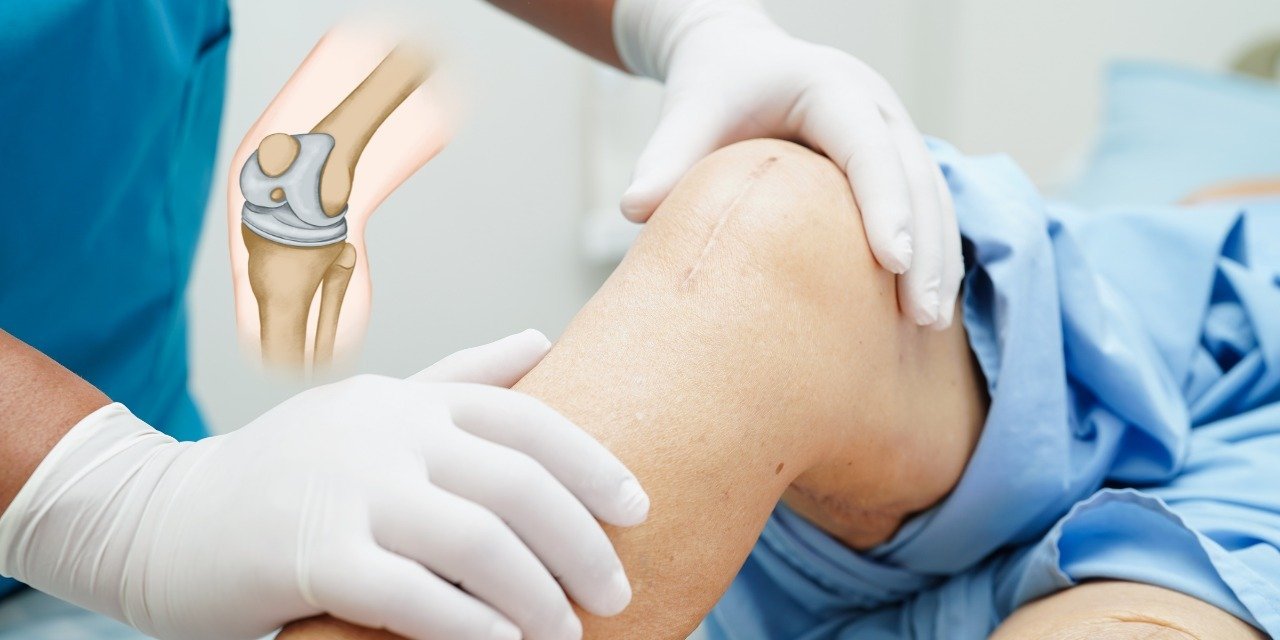Knee replacement surgery is one of the most common and successful procedures performed worldwide. It is typically recommended for individuals suffering from severe knee pain, reduced mobility, or debilitating arthritis that has not responded well to conservative treatments. If you’re considering knee replacement surgery, it’s essential to understand what it entails, the different types of knee replacement procedures, and the recovery process. This guide will provide valuable information to help you make an informed decision.
What is Knee Replacement Surgery?
Knee replacement surgery, also known as knee arthroplasty, involves removing damaged or worn-out parts of the knee joint and replacing them with artificial components. The goal of the surgery is to alleviate pain, improve function, and enhance quality of life for individuals with knee problems due to conditions like osteoarthritis, rheumatoid arthritis, or injury.
There are two primary types of knee replacement surgery:
- Total Knee Replacement (TKR): In this procedure, both the damaged surface of the femur (thigh bone) and tibia (shin bone) are replaced with metal and plastic components. This is the most common form of knee replacement surgery.
- Partial Knee Replacement (PKR): If only one part of the knee is damaged, a partial replacement can be done, preserving the healthy parts of the joint. This approach is less invasive and offers faster recovery times.
Why is Knee Replacement Surgery Needed?
Knee replacement surgery is generally recommended when conservative treatments such as physical therapy, medications, injections, or lifestyle changes no longer provide relief. The most common reasons for considering knee replacement surgery include:
- Osteoarthritis: A degenerative joint disease that causes the cartilage in the knee to wear away, leading to pain, stiffness, and swelling.
- Rheumatoid Arthritis: An autoimmune condition that can lead to joint damage and inflammation.
- Injuries: Severe knee injuries, including fractures and ligament damage, may require knee replacement if the joint is beyond repair.
- Other Joint Conditions: Conditions like avascular necrosis or deformities may also require knee replacement to restore function and alleviate pain.
The Procedure: What to Expect
Knee replacement surgery is usually performed under general anesthesia or regional anesthesia (numbing the lower half of your body). Here’s an overview of the process:
- Incision: The surgeon makes an incision over the knee to access the damaged joint.
- Reshaping the Bones: The damaged portions of the femur, tibia, and sometimes the patella (kneecap) are removed and replaced with artificial components. These components are typically made of metal alloys, plastic, or ceramic materials.
- Implantation: The artificial components are carefully fitted and positioned to restore the natural alignment of the knee.
- Closing the Incision: The incision is closed with stitches or staples, and a dressing is applied.
Recovery After Knee Replacement Surgery
Recovery after knee replacement surgery varies from person to person, but here’s what you can generally expect:
- Hospital Stay: After the surgery, you may need to stay in the hospital for a few days. Pain management and rehabilitation will start right away.
- Physical Therapy: Physical therapy is a crucial part of the recovery process. You’ll begin with gentle exercises to improve knee strength and range of motion. Over time, your therapist will increase the intensity of exercises as you progress.
- Mobility: Most patients are able to walk with assistance or a walker within a day or two after surgery. Within a few weeks, many can walk with minimal assistance.
- Pain Management: Pain is usually managed with medications, and your doctor will provide a plan to help minimize discomfort as you heal.
- Full Recovery: Full recovery can take several months. However, most patients can return to normal activities within six to twelve weeks, with full recovery typically taking up to a year.
Risks and Complications
Like any surgery, knee replacement comes with some risks, including:
- Infection
- Blood clots
- Nerve damage
- Implant failure
- Stiffness or loss of motion
However, these complications are rare, and your orthopedic surgeon will take precautions to minimize risks.
Why Choose Dashmesh Hospital in Zirakpur for Knee Replacement Surgery?
If you’re considering knee replacement surgery, it’s crucial to choose the right healthcare provider. Dashmesh Hospital in Zirakpur, Mohali (Pb), is renowned for its expertise in orthopedic procedures, including knee replacement surgery. Led by Dr. Brijendra Gupta, a highly experienced orthopedic surgeon, the hospital provides state-of-the-art facilities and personalized care tailored to each patient’s needs.
With advanced medical technology and a team of skilled professionals, Dashmesh Hospital is recognized as one of the best orthopedic hospitals in Zirakpur. Whether you’re undergoing a total knee replacement or partial knee replacement, you can trust the hospital’s compassionate care and commitment to delivering the best outcomes.
For consultations and inquiries, you can contact Dr. Brijendra Gupta at Dashmesh Hospital at the following numbers:
Phone: 84376-31337, 95010-45581.










